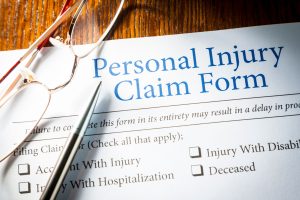Every instance of Florida sexual assault of a patient by a healthcare provider is an egregious breach of trust and professional ethics. For doctors, it’s a violation of the sacred Hippocratic Oath to “first, do no harm.” But can it be considered “medical malpractice?”
Medical malpractice is a type of civil claim. But not all civil claims against healthcare providers or institutions are necessarily for malpractice.
Our West Palm Beach civil trial lawyers are experienced in the successful handling of both civil sexual assault cases and medical malpractice claims in South Florida. While each case is fact-specific, we generally frame patient sexual assaults as torts of general negligence rather than medical malpractice.
For one thing, it can be argued that sexual assault does not “arise out of” the administration of healthcare, for which a breach of duty is governed by applicable standards of care. It’s an intentional act by the accused perpetrator, and one that may have been reasonably foreseeable/preventable had the facility and/or employer exercised a reasonable degree of basic oversight/security.
Beyond this, Florida medical malpractice claims are held to much more rigorous standards for proof burdens, allowable evidence, and timelines. There are a lot more legal and procedural hurdles to clear just to get your foot in the door with a medical malpractice claim compared to other types of civil claims. Prevailing in medical malpractice cases also requires more time, resources, and legal expertise.
Defendants in medical malpractice cases also may not be required to pay out as much as those sued for ordinary negligence. While Florida has no caps on medical malpractice injury economic damages (compensation for things like medical bills and loss of income related to medical negligence), it does cap non-economic damages for things like anxiety, mental anguish, trauma, pain and suffering, and loss of companionship. The cap is set at $500,000 for practitioner defendants, such as doctors and nurses, and $750,000 for non-practitioner defendants, such as hospitals and healthcare systems (assuming the victim wasn’t left dead or in a vegetative state, in which case, the damage award goes up slightly). Non-economic damages are often a big part of damages sought in Florida civil sexual assault cases.
The end result of requiring these of sexual assault to be filed as medical malpractice is that victims have have a tougher time filing and establishing liability. They’ll pay more to do so, wait longer for justice, and likely be compensated less.
Recently, reporters with ProPublica and The Salt Lake Tribune reported on this phenomenon in Utah. The expose detailed the nearly-five-decade career of a doctor who faced civil lawsuits by 94 former patients who accused him of sexual assault. Several of those claims have been dismissed because a lower court judge has held they should be filed as medical malpractice claims – and the filings fall short of the more stringent standards for such cases. The Utah Supreme Court has granted review of appeals by several of those plaintiffs. But if the lower court’s ruling stands, it will also mean foreclosing on many future claims, because the statute of limitations for medical malpractice claims in those states is shorter than for ordinary negligence. It will also mean that even successful cases would be subject to the medical malpractice damage caps.
Here in Florida, courts have ruled both ways.
Florida Court Rulings on Health Care Sexual Assaults as Medical Malpractice Claims
Some examples: Continue reading
 South Florida Injury Lawyer Blog
South Florida Injury Lawyer Blog











 There may in fact be several legal theories upon which you may base a successful claim against Uber, Lyft, or other rideshare company for failure to protect against sexual assault. This is true for drivers as well as passengers (as both have reportedly been attacked).
There may in fact be several legal theories upon which you may base a successful claim against Uber, Lyft, or other rideshare company for failure to protect against sexual assault. This is true for drivers as well as passengers (as both have reportedly been attacked).




